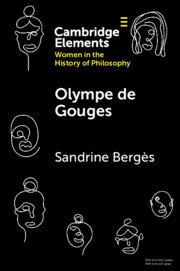Element contents
Olympe de Gouges
Published online by Cambridge University Press: 07 July 2022
Summary
- Type
- Element
- Information
- Online ISBN: 9781009023702Publisher: Cambridge University PressPrint publication: 28 July 2022
References
- 15
- Cited by



